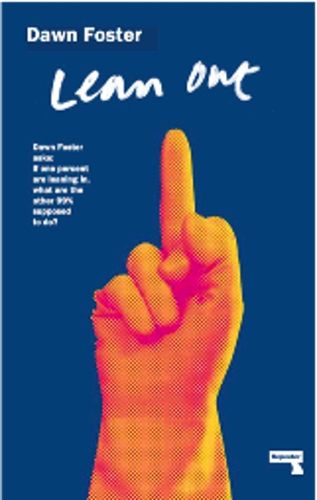Readings Newsletter
Become a Readings Member to make your shopping experience even easier.
Sign in or sign up for free!
You’re not far away from qualifying for FREE standard shipping within Australia
You’ve qualified for FREE standard shipping within Australia
The cart is loading…






Sheryl Sandberg’s business advice book, Lean In,
was heralded as a defining moment in attitudes to women in business. But for all its commercial success, it proposed a model of feminism that was individualistic and unthreatening to capital.
In her powerful debut work Lean Out,
acclaimed journalist Dawn Foster unpicks how the purportedly feminist message of Sandberg’s book neatly exempts patriarchy, capitalism and business from any responsibility for changing the position of women in contemporary culture. It looks at the rise of a corporate 1% feminism, and at how feminism has been defanged and depoliticised at a time when women have borne the brunt of the financial crash and the gap between rich and poor is widening faster than ever.
Surveying business, media, culture and politics, Foster asks whether this trickledown feminism offers any material gain for women collectively, or acts as mere window-dressing PR for the corporations who caused the financial crash. She concludes that leaning out of the corporate model is a more effective way of securing change than leaning in.
$9.00 standard shipping within Australia
FREE standard shipping within Australia for orders over $100.00
Express & International shipping calculated at checkout
Sheryl Sandberg’s business advice book, Lean In,
was heralded as a defining moment in attitudes to women in business. But for all its commercial success, it proposed a model of feminism that was individualistic and unthreatening to capital.
In her powerful debut work Lean Out,
acclaimed journalist Dawn Foster unpicks how the purportedly feminist message of Sandberg’s book neatly exempts patriarchy, capitalism and business from any responsibility for changing the position of women in contemporary culture. It looks at the rise of a corporate 1% feminism, and at how feminism has been defanged and depoliticised at a time when women have borne the brunt of the financial crash and the gap between rich and poor is widening faster than ever.
Surveying business, media, culture and politics, Foster asks whether this trickledown feminism offers any material gain for women collectively, or acts as mere window-dressing PR for the corporations who caused the financial crash. She concludes that leaning out of the corporate model is a more effective way of securing change than leaning in.